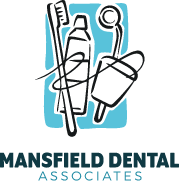Bruxism and TMD are two separate conditions, but sufferers of bruxism can easily develop TMD. Bruxism is a condition where a person tends to clench their jaw, and can be especially prone to doing so while they sleep. TMD stands for temporomandibular joint disorder. This is a problem with your jaw joint that can cause you to experience chronic pain. Both of these conditions can leave you in constant discomfort, and unaddressed bruxism can even damage your teeth. If you suffer from either condition, your dentist can help provide relief through treatment. A special night guard can stop your teeth from grinding against each other, and an oral splint can hold keep your jaw in a more comfortable placement, to reduce discomfort.
1. TMD Can Cause Chronic Headaches And Other Types Of Discomfort
TMD is a possible cause of chronic headaches. It can also make your jaw and facial muscles experience routine discomfort.
2. Bruxism Can Cause Dental Damage
Your jaw can generate serious power – when you grind your teeth, they experience serious strain. Bruxism is often detectable because a person has an unusual amount of wear and tear on their teeth. The damage can become so serious that you may need to have a dental crown placed on a tooth. You may need a cosmetic treatment to hide evidence of excess wear.
3. TMD And Bruxism Can Make It Harder To Chew And Speak
A night spent clenching your jaw can mean waking up with sore or sensitive teeth. It may be difficult to chew food. TMD can also limit comfortable jaw movements, so that you have a more difficult time chewing, or even speaking.





Recent Comments